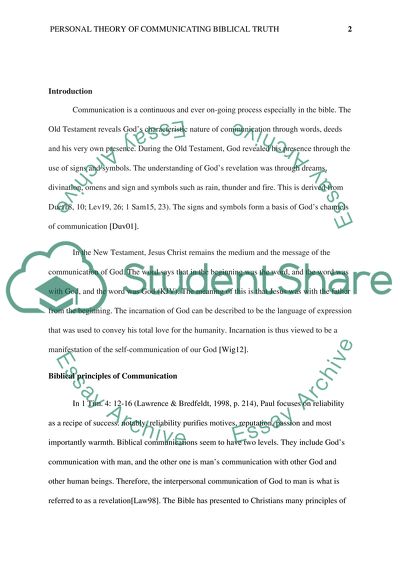Cite this document
(“Personal Theory of Communicating Biblical Truth Term Paper”, n.d.)
Retrieved from https://studentshare.org/religion-and-theology/1664097-personal-theory-of-communicating-biblical-truth
Retrieved from https://studentshare.org/religion-and-theology/1664097-personal-theory-of-communicating-biblical-truth
(Personal Theory of Communicating Biblical Truth Term Paper)
https://studentshare.org/religion-and-theology/1664097-personal-theory-of-communicating-biblical-truth.
https://studentshare.org/religion-and-theology/1664097-personal-theory-of-communicating-biblical-truth.
“Personal Theory of Communicating Biblical Truth Term Paper”, n.d. https://studentshare.org/religion-and-theology/1664097-personal-theory-of-communicating-biblical-truth.


